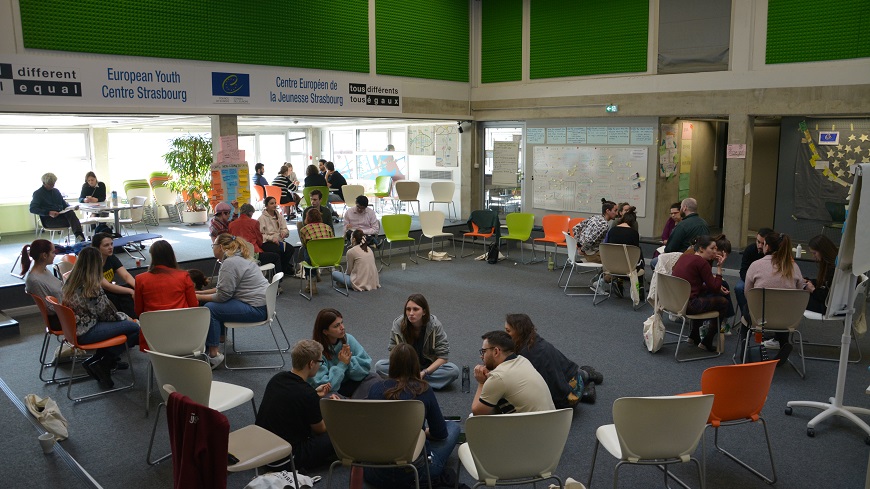Training Course on Essentials of Non-Formal Education 2024

The Youth Department has established a set of quality standards in non-formal education activities that relate to the function of intercultural non-formal activities with young people in promoting the right to human rights education, democratic citizenship and youth participation, peace-building and intercultural dialogue. The quality standards concern context, partners, people, methods and different stages of the activity or project.
 The quality of youth activities depends on the competences, ability, motivation and capacity of the organisers and the facilitators to plan and deliver a programme and methodology in line with those criteria.
The quality of youth activities depends on the competences, ability, motivation and capacity of the organisers and the facilitators to plan and deliver a programme and methodology in line with those criteria.
 To support these young organisers and facilitators, different tools and training opportunities have been made available by the Council of Europe. In 2022 and in 2023, training courses were organised for facilitators and organisers of study sessions and EYF-supported activities.
To support these young organisers and facilitators, different tools and training opportunities have been made available by the Council of Europe. In 2022 and in 2023, training courses were organised for facilitators and organisers of study sessions and EYF-supported activities.
 The training course in 2024 will build on these previous experiences and lessons learnt and take into account current developments in the youth sector of the Council of Europe. It aims to increase the capacities of youth organisations to carry out quality international intercultural non-formal educational activities with a multiplying effect for their members, and enabling young people to actively uphold, defend, promote and benefit from the Council of Europe’s core values of human rights, democracy and the rule of law.
The training course in 2024 will build on these previous experiences and lessons learnt and take into account current developments in the youth sector of the Council of Europe. It aims to increase the capacities of youth organisations to carry out quality international intercultural non-formal educational activities with a multiplying effect for their members, and enabling young people to actively uphold, defend, promote and benefit from the Council of Europe’s core values of human rights, democracy and the rule of law.
 Objectives
Objectives
- To enable participants to understand and apply essential approaches and methodologies in non-formal education as applied in the European Youth Centres and by the European Youth Foundation, and to support the quality of activities and their contribution to the mission of the Council of Europe and of the youth sector in particular
- To support participants in understanding and integrating the policy standards and priorities of the Council of Europe, in particular its’ youth sector, as reflected in the 2030 Strategy and the Reykjavik Declaration
- To strengthen participants’ competences in using non-formal education with young people in international activities, including the key understanding, skills and attitudes required for running intercultural educational activities
- To support participants in using the relevant educational resources produced by the Council of Europe in the activities that they organise or facilitate
- To reflect on and plan how to ensure quality non-formal education in future youth activities, including how to ensure that they have a multiplying effect.
 Programme and methodology
Programme and methodology
The content and methodology of the course are designed to make participants reflect on and experience non-formal education in the context of activities carried out with the Youth Department. It will build on experiential learning, individual reflection, and exchange of practices among participants by using the participatory methods of learning, such as working groups and facilitated discussions.
The course will itself apply the quality standards in non-formal education produced by the Youth Department.
The programme of the course will focus on the following:
- Essentials of non-formal education: facilitation, programme design, evaluation, learning theories and styles;
- Council of Europe youth policy/work standards, guidelines and educational resources and approaches - and their translation in youth activities;
- Applying and multiplying lessons learnt and best practices on non-formal education in youth activities, especially in the Youth Department context.
29 January - 3 February 2024
European Youth Centre Budapest
List of participants


